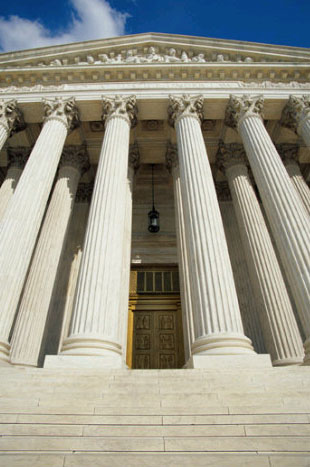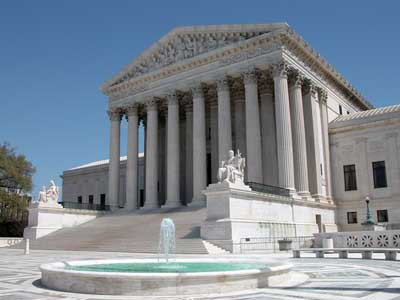
Parole may have different meanings depending on the field and judiciary system. All of the meanings originated from the French parole (“voice”, “spoken word”). Following its use in late-resurrected Anglo-French chivalric practice, the term became associated with the release of prisoners based on prisoners giving their word of honor to abide by certain restrictions. One proposed reform is that parole bonds be used to incentivize defendants not to re-offend. Parole should not be confused with probation, as parole is serving the remainder of a sentence outside of prison, where probation is given instead of a prison sentence and as such, tends to place more rigid obligations upon the individual serving the term.
In criminal justice systems, parole is the supervised release of a prisoner before the completion of their sentence in prison. This differs from amnestyor commutation of sentence in that parolees are still considered to be serving their sentences, and may be returned to prison if they violate the conditions of their parole. A specific type of parole is medical parole or compassionate release which is the release of prisoners on medical or humanitarian grounds. Conditions of parole often include things such as obeying the law, refraining from drug and alcohol use, avoiding contact with the parolee's victims, obtaining employment, and maintaining required contacts with a parole officer. Some justice systems, such as the United States federal system, place defendants on supervised release after serving their entire prison sentence; this is not the same as parole.


In China, prisoners are often granted medical parole or compassionate release, which releases them on the grounds that they must receive medical treatment which cannot be provided for in prison. Occasionally, medical parole is used as a no-publicity way of releasing an accidentally imprisoned convict.
The Chinese legal code has no explicit provision for exile, but often a dissident is released on the grounds that they need to be treated for a medical condition in another country, and with the understanding that they will be reincarcerated if they return to China. Dissidents who have been released on medical parole include Ngawang Chophel, Ngawang Sangdrol, Phuntsog Nyidron, Takna Jigme Zangpo, Wang Dan, Wei Jingsheng, Gao Zhan and Fang Lizhi.
Libertà condizionata is covered by Article 176 of the Italian Penal Code. A prisoner is eligible if he has served at least 30 months (or 26 years for life sentences), and the time remaining on his sentence is less than half the total (normally), a quarter of the total (if previously convicted or never convicted) or five years (for sentences >7.5 years). 21 inmates were grantedlibertà condizionata in 2006.

Penologist Zebulon Brockway first introduced parole when he became superintendent of Elmira Reformatory in New York state. In order to manage prison populations and rehabilitate those incarcerated he instituted a two part strategy that consisted of indeterminate sentences and parole releases.
In the United States, courts may specify in a sentence how much time must be served before a prisoner is eligible for parole. This is often done by specifying an indeterminate sentence of, say, "15 to 25 years," or "15 years to life". The latter type is known as an indeterminate life sentence; in contrast, a sentence of "life without the possibility of parole" is known as a determinate life sentence.
In most states, the decision of whether an inmate is paroled is vested in a paroling authority such as a parole board. Mere good conduct while incarcerated in and of itself does not necessarily guarantee that an inmate will be paroled. Other factors may enter into the decision to grant or deny parole, most commonly the establishment of a permanent residence and immediate, gainful employment or some other clearly visible means of self-support upon release (such as Social Security if the prisoner is old enough to qualify). Many states now permit sentences of life imprisonment without the possibility of parole (such as for murder and espionage), and any prisoner not sentenced to either this or the death penalty will eventually have the right to petition for release (one state – Alaska – maintains neither the death penalty nor life imprisonment without parole as sentencing options).
Before being granted the privilege of parole, the inmate meets with members of the parole board and is interviewed, The parolee also has a psychological exam. The inmate must first agree to abide by the conditions of parole set by the paroling authority. While in prison, the inmate signs a parole certificate or contract. On this contract are the conditions that the inmate must follow. These conditions usually require the parolee to meet regularly with his or her parole officer or community corrections agent, who assesses the behavior and adjustment of the parolee and determines whether the parolee is violating any of his or her terms of release (typically these include being at home during certain hours which is called a curfew, maintaining steady employment, not absconding, refraining from illicit drug use and sometimes, abstaining from alcohol), attend drug or alcohol counseling, have no contact with their victim. The inmate gives an address which is verified by parole officers as valid before inmate is released on to parole supervision. Upon release, the parolee goes to a parole office and is assigned a parole officer. Parole officers go to parolees' houses or apartments to check on them as unannounced visits. During these home visits officers look for signs of drug or alcohol use, no guns or illegal weapons are in the parolees residence, and look for signs of other illegal activities. Should parolees start to use drugs or alcohol, they are told to go to drug or alcohol counseling and NA or AA meeting. Should they not comply with conditions on the parole certificate a warrant is issued for their arrest. Their parole time is stopped when the warrant is issued and starts only after they are arrested. They have a parole violation hearing within a specified time, and then a decision is made by the parole board to revoke their parole or continue the parolee on parole. In some cases, a parolee may be discharged from parole before the time called for in the original sentence if it is determined that the parole restrictions are no longer necessary for the protection of society (this most frequently occurs when elderly parolees are involved).
Service members who commit crimes while in the US military may be subject to Court Martial proceedings under the Uniform Code of Military Justice (UCMJ). If found guilty, they may be sent to Federal or Military Prisons and upon release may be supervised by U.S./Federal Probation Officers.
Parole is a controversial political topic in the United States. According to the U.S. Department of Justice, at least sixteen states have abolished parole entirely, and four more have abolished parole for certain violent offenders. During elections, politicians whose administrations parole any large number of prisoners (or, perhaps, one notorious criminal) are typically attacked by their opponents as being "soft on crime".
A variant of parole is known as "time off for good behavior", or, colloquially, "good time". Unlike the traditional form of parole – which may be granted or denied at the discretion of a parole board – time off for good behavior is automatic absent a certain number (or gravity) of infractions committed by a convict while incarcerated (in most jurisdictions the released inmate is placed under the supervision of a parole officer for a certain amount of time after being so released). In some cases "good time" can reduce the maximum sentence by as much as one-third. It is usually not made available to inmates serving life sentences, as there is no release date that can be moved up.
In US immigration law, the term parole has three different meanings.
A person who does not meet the technical requirements for a visa may be allowed to enter the U.S. for humanitarian purposes. Persons who are allowed to enter the U.S. in this manner are known as parolees.
Another use related to immigration is advance parole, in which a person who already legally resides in the U.S. needs to leave temporarily and return without a visa. This typically occurs when a person's application for a green card (permanent residency) is in process and the person must leave the U.S. for emergency or business reasons. In the wake of September 11, 2001, there has been greater scrutiny of applications for advance parole.
A person who goes out of the country on "advanced parole" has to go through the following process: Canada by road: US Immigration officers will require you to submit one parole document to them. They will stamp your passport and another parole document, and issue a new I-94 form.
The term is also used to denote scenarios in which the federal government orders the release of an alien inmate incarcerated in a state prison before that inmate's sentence has been completed, with the stipulation that the inmate be immediately deported, and never permitted to return to the United States. The most celebrated example of this form of parole was that of Lucky Luciano, who was being "rewarded" for cooperating with the war effort during World War II. In most cases where such parole is resorted to, however, the federal government has deemed that the need for the immediate deportation of the inmate outweighs the state's interest in meting out punishment for the crime the inmate committed.

Most of Canada's federal offenders serve only part of their sentences in prison. Part of their time is served in the community, where they adhere to certain conditions and are supervised by professional staff of the Correctional Service of Canada. The work of gradually releasing offenders, ensuring that they do not present a threat to anyone, and helping them adjust to life beyond prison walls is called community corrections. Such work is essential because experience has shown most criminals are more likely to become law-abiding citizens if they participate in a program of gradual, supervised release.
The Correctional Service of Canada is dedicated to protecting society by controlling offenders and by helping them change the attitudes and behaviours that led them into criminal activity. The first steps toward change are taken in the prison setting. But if the change is to last, it must continue in the community, where almost all offenders eventually return. The transition from confinement to freedom can be difficult; offenders have a better chance of success if they receive supervision, opportunities, training and support within the community.

The authority to grant parole is found in the Corrections and Conditional Release Act (CCRA), and the respective provincial legislation. The authority for temporary absences is found in both federal and provincial correctional legislation and is exercised by correctional authorities in provincial and territorial systems. In the federal system, the responsibility for temporary absences is shared between the National Parole Board (NPB) and the Correctional Service of Canada.
Under the CCRA, the NPB has exclusive jurisdiction and absolute discretion to grant, deny, terminate or revoke parole for inmates in federal, territorial, and many provincial institutions, except for cases under the jurisdiction of provincial parole boards. The National Parole Board may also, when applicable, revoke the statutory release of an offender.
The National Parole Board relies on the CSC to prepare reports and recommendations on the cases that come before the Board. The Correctional Service of Canada supervises offenders on parole or statutory release to ensure that they adhere to the conditions of release set by the National Parole Board.







 We provide legal assistance to our customers worldwide from more than 30 years ago in any legal area you need
We provide legal assistance to our customers worldwide from more than 30 years ago in any legal area you need

























1 comments:
Currently, the Government of Canada seems to be propagating society’s fear of the criminally accused.
US Waiver For Canadians
Post a Comment